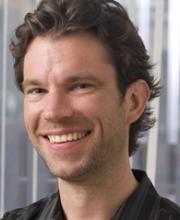Konrad Hochedlinger, Ph.D.
Broad Institute
Howard Hughes Medical Institute

The Hochedlinger lab investigates the role stem cells play in normal development and disease.
Stem cells have the dual potential to self-renew and give rise to mature cells. They play key roles in development, during tissue homeostasis and following injury in the adult. Moreover, stem cells have been experimentally shown to be the cells of origin in certain types of cancer. To understand the biology of stem cells and to exploit their use for therapy, it is critical to identify and characterize the factors that control the decision between their self-renewal and differentiation under normal physiological conditions and in disease.
We are particularly interested in the biology of embryonic stem (ES) cells which are derived from early embryos and retain the ability to give rise to all cell types of the body, an ability referred to as pluripotency. The pluripotency of ES cells is dependent upon a set of genes whose elimination results in the inappropriate commitment of ES cells into specialized cells. Interestingly, some of the pluripotency genes are also active in rare adult cells, however their function in the adult remains poorly understood. This observation suggests a common origin of these cell types and indicates similarities between embryonic and adult stem cells. We are interested in studying the biology of these cells in order to determine whether they originate from a common precursor, whether they can serve as the cells of origin in cancer, and whether these cells have an increased ability to convert back into embryonic stem cells when manipulated experimentally.
We use cell culture and animal model systems to further characterize the role of pluripotency genes. Specifically, we employ gene targeting in ES cells, mouse transgenesis, and nuclear transfer as tools to address the fundamental questions of where stem cells come from, what similarities and differences there are between different types of stem cells and what role they play in tumor formation. Ultimately, studying these questions may lead to novel strategies to expand adult stem cells and convert one cell type into another therapeutically relevant cell type, goals of regenerative medicine, and could help to fight cancer more effectively by targeting tumor cells at their roots.
